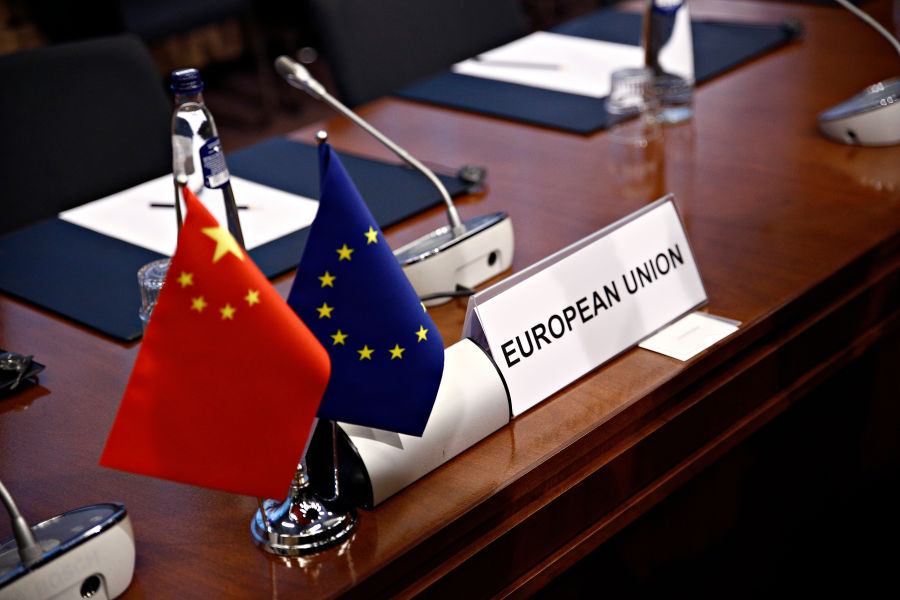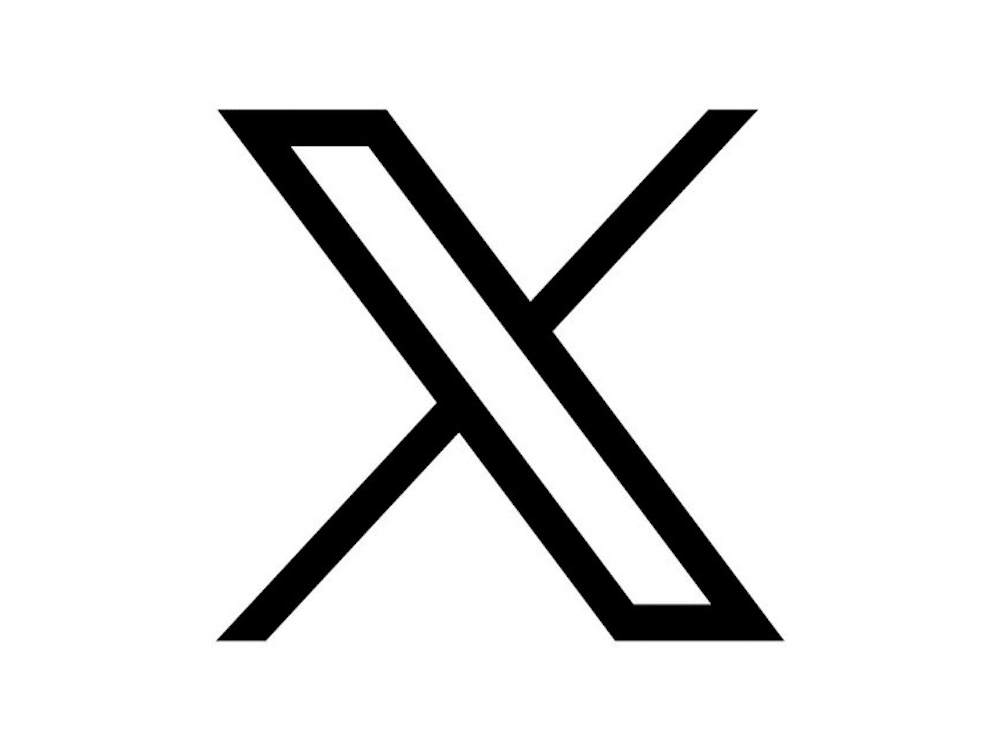The relations between the European Union and the People’s Republic of China are in flux. Long-held certainties are eroding. Intensifying great power rivalry between the US and China, both stepping up pressure on the EU, requires Europe to reconsider its policies. In 2019, the European External Action Service released a new "Strategic Outlook" describing China simultaneously as a "partner", "competitor" and a "systemic rival". The European Commission under Ursula von der Leyen has termed itself a “geopolitical Commission”.
For decades, Europeans hoped that an active engagement strategy would help liberalizing China both economically and politically. From the beginning of diplomatic ties in 1975, EU-China relations gradually expanded into a “comprehensive strategic partnership” comprising an annual summit, three high-level dialogues and more than 60 sectoral dialogue formats covering all kinds of policy areas.
Since 2016, due to the conjunction of at least three factors in the bilateral relationship, the EU has grown more critical of China. First, the perception of China as an unfair competitor is on the rise in Europe. Second, European assessment of China’s political development under Xi Jinping is negative, including a more nationalistic policy and Beijing’s heavy-handed approach to Xinjiang and Hong Kong. Third, EU officials perceive Chinese diplomacy as undermining European unity – be it in the participation of a sub-regional policy platform (17+1) or by means of interference into EU member states.
In all my research, I adopt an explicitly European perspective in order to grasp this significant shift in Europe-China relations. I frequently travel to Brussels and other European capitals in order to better understand the transforming relations with the People’s Republic of China. When visiting China, I try to get hold of the Chinese perspectives and policies towards Europe.
Of crucial importance to my work on Europe-China relations is the cooperation with colleagues across the continent in two research networks: the European Think-tank Network on China (ETNC) that I have been heading as the network’s rotating coordinator in 2018 (and continue to be a participant of), and the China in Europe Research Network (CHERN) in which I serve as the chairman of the working group on high technology and innovation.
Related projects & publications:
Project: China in Europe Research Network (CHERN)
Project: European Think-tank Network on China (ETNC)
Publication: Forthcoming (2025, with Martin Catarata, David Francas and Jasmina Kirchhoff): Strategische Abhängigkeiten bei wichtigen Arzneimitteln von China. Köln: IW Köln.
Publication: Forthcoming (2025, with Alessia Caruso): China-Russia relations in data. Paris: EUISS.
Publication: 2025 (with Clotilde Bomont): Questioning US dominance. China’s DeepSeek R1 and the pluralisation of AI development. Paris: EUISS.
Publication: 2025: The “Huawei Saga” in Europe revisited German Lessons for the Rollout of 6G. Paris: IFRI.
Publication: 2025: Same summit, different stakes. Brussels: European Union Institute for Security Studies.
Publication: 2025: China. Reducing its calculated support for Russia, in: Ditrych, Ondrej and Everts, Steven (eds.): Unpowering Russia. How the EU can counter and undermine the Kremlin. Paris: EUISS, pp. 18-25.
Publication: 2025 (with Joris Teer): Resilience by design: A new EU Foreign Economic Policy to counter global disorder. Brussels: EUISS.
Publication: 2025 (with Joris Teer): A new transatlantic trade and tech agenda: economic security standards can address the EU’s and Washington’s concerns about China. Paris: European Union Institute for Security Studies.
Publication: 2024: China’s growing legacy chip production - A challenge for Europe? Paris: European Union Institute for Security Studies.
Publication: 2024: China’s legacy chip buildout: A new strategic dependency that needs EU de-risking? Stockholm: The Swedish Institute of International Affairs.
Publication: 2024: Curbing China's legacy chip clout - Reevaluating EU strategy. Reevaluating EU strategy. EUISS Brief 21/2024. Paris: European Union Institute for Security Studies.
Publication: 2024: Trade, Tech and Taiwan: Crafting a transatlantic China agenda. Paris: European Union Institute for Security Studies.
Publication: 2023 (with Miguel Otero): How normative should Europe’s China policy be? A controversial conversation. Amsterdam: CHERN.
Publication: 2022 (with Richard Turcsanyi et al.): Trans-atlantic public opinion on China: Great power competition amidst Russian invasion of Ukraine. Bratislava: CEIAS.
Publication: 2022 (with Christian Mölling et al.): Zeitenwende für Europas Sicherheitsordnung. Entwicklungsoptionen in drei Skizzen. DGAP Policy Brief. Berlin: DGAP.
Publication: 2022: The China factor in Russia's war. An analysis in five scenarios. DGAP Analysis. Berlin: German Council on Foreign Relations.
Publication: 2022: Der China-Faktor in Russlands Krieg. Implikationen für Europa. DGAP Analyse 2/2022. Berlin: Deutsche Gesellschaft für Auswärtige Politik. (in German)
Publication: 2022: A Sovereign Europe... and China, in: Internationale Politik Quarterly.
Publication: 2022: Weniger abhängig von China?, in: Internationale Politik January/Febraury 2022, pp. 36-38.
Publication: 2021 (with Christian Mölling, Tyson Barker, Kira Vinke, Serafine Dinkel and Leonie Stamm): A New Foreign Policy for Germany? DGAP Online Commentary. Berlin: DGAP.
Publication: 2021: Aktionsplan China und Außenpolitik. Was Deutschland tun muss, um im Systemwettbewerb mit China zu bestehen, in: Schwarzer, Daniela/Mölling, Christian (eds.): Smarte Souveränität. Zehn Aktionspläne für die künftige Bundesregierung. Berlin: DGAP, pp. 47-56.
Publication: 2021 (with Oscar Shao): China’s dwindling soft power in Sweden, in: Ties Dams et al. (eds.): China's soft power in Europe. Falling on hard times. ETNC annual report. The Hague: ETNC, pp. 97-101.
Publication: 2021 (with Ties Dams and Plamen Tonchev): Does China still care about soft power? Assessing the diversity of approaches in Europe, in: Falling on hard times. China's soft power in Europe, in: Ties Dams et al. (eds.): China's soft power in Europe. Falling on hard times. ETNC annual report. The Hague: ETNC, pp. 5-13.
Publication: 2021 (with Richard Turcsanyi, Jelena Gledić and Una Aleksandra Bērziņa-Čerenkova): European Public United on China: selective cooperation in spite of negative perceptions. Amsterdam: CHERN Policy Brief 1/2021.
Publication: 2020: Towards a More Principled European China Policy? Democracy, Human Rights and the Rule of Law in EU-China Relations. Études de l'Ifri. November 2020. Paris: Ifri.
Publication: 2020 (with Björn Jerdén, Richard Q. Turcsányi, Matej Šimalčík, Kristína Kironská and Renáta Sedláková): What Do Swedes Think about China? Insights from an Extensive Survey of Swedish Public Opinion of China. UI Paper 8/2020. Stockholm: UI.
Publication: 2020 (with Richard Q. Turcsányi, Matej Šimalčík, Kristína Kironská and Renáta Sedláková): German public opinion on China in the age of COVID-19. Ripe for European leadership? Olomouc: Palacký University.
Publication: 2020: China’s Deteriorating Image, 18 November 2020, Internationale Politik Quarterly.
Publication: 2020 (with Richard Q. Turcsányi, Matej Šimalčík, Kristína Kironská, Renáta Sedláková et al.): European public opinion on China in the age of COVID-19. Differences and common ground across the continent. Olomouc: Palacký University.
Publication: Exposing the fragility of EU-China relations. East Asia Forum. 23 May 2020.
Publication: 2019 (with Bruno Hellendorff): The EU’s Reactive Approach to Rising Tensions Between the US and China, in: Miguel Otero et al. (eds.) Europe in the Face of US-China Rivalry. European Think-tank Network on China – annual report. Madrid: ETNC.
Publication: Political values in EU-China relations. Towards a “principled” or a “pragmatic” approach?, in: Tim Nicholas Rühlig, Björn Jerdén, Frans-Paul van der Putten, John Seaman, Miguel Otero, and Alice Ekman (eds.): Political values in EU-China relations. European Think Tank Network on China – annual report. Brussels: ETCN, pp. 91-95.
Publication: (with Björn Jerdén, Frans-Paul van der Putten, John Seaman, Miguel Otero, and Alice Ekman): Introduction: The role of political values in Europe-China relations in: Tim Nicholas Rühlig, Björn Jerdén, Frans-Paul van der Putten, John Seaman, Miguel Otero, and Alice Ekman (eds.): The role of political values in EU-China relations. European Think Tank Network on China – annual report. Brussels: ETCN, pp.9-22.
Publication: (with Björn Jerdén, Frans-Paul van der Putten, John Seaman, Miguel Otero, and Alice Ekman): Political values in EU-China relations. European Think Tank Network on China – annual report. (presented at the European Parliament, the European Council, the European Commission, and the European External Action Service among others; on the list of “recommended readings” by the US State Department for all diplomatic missions of the United States).
Publication: The EU’s New China Resolution: Principled but not strategic, in: The Diplomat. 13 September 2018.


